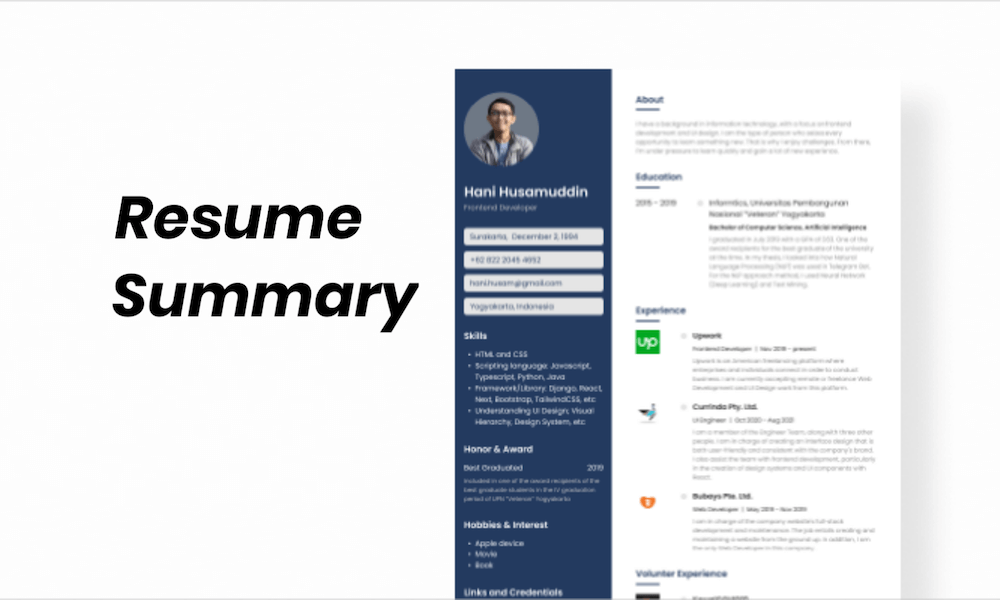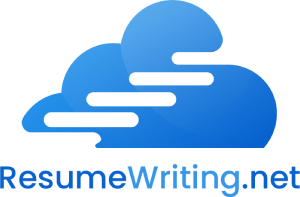Creating a compelling resume summary is a critical task in the job application process. The resume summary is your first chance to make a strong impression on potential employers. It needs to be concise, clear, and compelling, highlighting your key qualifications and skills in a way that persuades hiring managers to read further. Here’s a comprehensive guide on how to write a resume summary that stands out.

Understanding the Resume Summary
A resume summary is a brief statement at the top of your resume that summarizes your professional background, key skills, and what you bring to the table. It typically consists of 3-5 sentences and should be tailored to the job you are applying for. The purpose of the resume summary is to quickly convey your value proposition to employers, making them eager to learn more about you.
Step-by-Step Guide to Writing a Resume Summary
1. Reflect on Your Career Goals
Before you start your resume writing, take a moment to reflect on your career goals. What kind of job are you seeking? What are your long-term career aspirations? Understanding your objectives will help you craft a resume summary that aligns with your professional goals and attracts the right employers.
2. Review the Job Description
Carefully read the job description for the position you’re applying for. Identify the key skills, experiences, and qualifications the employer is seeking. This will give you a clear idea of what to emphasize in your resume summary. Tailoring your summary to match the job description will increase your chances of catching the hiring manager’s attention.
3. Highlight Your Key Achievements
Think about your most significant professional achievements and how they relate to the job you’re applying for. These could include specific projects you’ve completed, awards you’ve received, or milestones you’ve achieved. Highlighting these accomplishments in your resume summary will demonstrate your ability to deliver results.
4. Focus on Your Key Skills
Identify the skills that are most relevant to the job and your career field. These could include technical skills, soft skills, and industry-specific skills. It’s also important to know how many jobs should you list on a resume and make sure to include a mix of both hard and soft skills in your summary to showcase your well-rounded abilities.
5. Keep It Concise
Your resume summary should be concise and to the point. Aim for 3-5 sentences that effectively convey your qualifications and value. Avoid using jargon or overly complex language. Remember, the goal is to make it easy for the hiring manager to quickly understand your strengths.
Structuring Your Resume Summary
1. Start with a Strong Opening Sentence
Begin your resume summary with a strong opening sentence that captures attention. This could be a brief statement about your professional background or a key accomplishment. For example: “Experienced marketing professional with over 10 years of experience in digital marketing and brand management.”
2. Highlight Your Key Skills and Achievements
In the next 2-3 sentences, highlight your key skills and achievements. Be specific and use quantifiable metrics where possible. For example: “Proven track record of increasing website traffic by 50% and generating $1M in annual revenue through targeted marketing campaigns.”
3. Align with the Job Description
Make sure to align your resume summary with the job description. Use keywords and phrases from the job posting to show that you have the skills and experience the employer is looking for. This will also help your resume pass through applicant tracking systems (ATS).
4. Conclude with Your Career Goals
End your resume summary with a sentence that outlines your career goals and how they align with the company’s objectives. For example: “Seeking to leverage my expertise in digital marketing to drive growth and engagement at XYZ Company.”
Examples of Resume Summaries
Example 1: Marketing Professional
“Dynamic marketing professional with over 8 years of experience in digital marketing, social media management, and content creation. Proven ability to develop and execute marketing strategies that drive brand awareness and increase sales. Successfully managed campaigns that increased website traffic by 40% and generated $500K in revenue. Seeking to bring my strategic vision and expertise to a forward-thinking company like ABC Corp.”
Example 2: Software Developer
“Results-oriented software developer with 5+ years of experience in full-stack development, specializing in JavaScript, Python, and React. Adept at designing and implementing scalable software solutions that improve efficiency and user experience. Led a team in developing a web application that reduced processing time by 30% and increased user engagement by 25%. Excited to contribute my technical skills and innovative approach to a dynamic team at Tech Innovators Inc.”
Example 3: Project Manager
“Certified Project Management Professional (PMP) with over 10 years of experience leading cross-functional teams in the successful delivery of complex projects. Expertise in project planning, risk management, and stakeholder communication. Managed a portfolio of projects with budgets totaling $5M, achieving a 95% on-time delivery rate. Eager to apply my leadership and project management skills to drive successful outcomes at XYZ Enterprises.”
Tips for Writing an Effective Resume Summary
1. Tailor Your Summary to Each Job
Customize your resume summary for each job application. Highlight the skills and experiences that are most relevant to the specific position. This will show employers that you are a good fit for their needs.
2. Use Action Verbs
Start your sentences with action verbs to make your summary more dynamic and engaging. Words like “led,” “developed,” “managed,” and “achieved” convey a sense of accomplishment and proactivity.
3. Be Specific and Quantify Achievements
Whenever possible, quantify your achievements with specific numbers or metrics. This adds credibility to your claims and helps employers understand the impact you’ve made in your previous roles.
4. Proofread and Edit
Carefully proofread your resume summary for any spelling or grammatical errors. A well-written summary with no errors reflects your attention to detail and professionalism. Consider asking a friend or colleague to review it as well.
5. Keep It Updated
Regularly update your resume summary to reflect your latest skills, experiences, and achievements. This ensures that your resume is always current and ready for new job opportunities.
Final Thoughts
Writing a resume summary is a strategic exercise that requires careful thought and planning. By focusing on your key skills, achievements, and career goals, and tailoring your summary to the job description, you can create a compelling resume summary that captures the attention of hiring managers. Remember to keep it concise, specific, and free of errors. With a strong resume summary, you’ll be well on your way to landing your next job opportunity.

